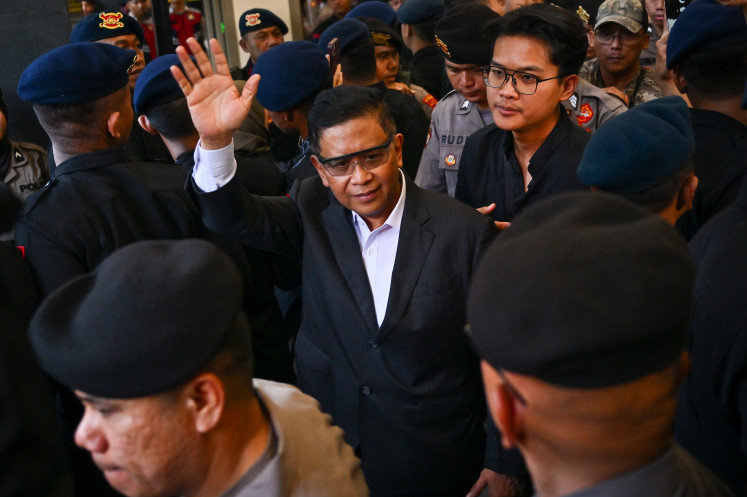Popular Reads
Top Results
Can't find what you're looking for?
View all search resultsPopular Reads
Top Results
Can't find what you're looking for?
View all search resultsGovt to run new audit for state universities
In an attempt to evaluate the effectiveness of programs run at state universities, the Education and Culture Ministry will implement an audit for programs at state universities next year
Change text size
Gift Premium Articles
to Anyone
I
n an attempt to evaluate the effectiveness of programs run at state universities, the Education and Culture Ministry will implement an audit for programs at state universities next year.
Deputy education minister Musliar Kasim told The Jakarta Post recently that the audit would determine whether programs at state universities were really needed and efficiently implemented.
“We will start to implement the audit in March next year, as soon as we have prepared the human resources,” he said.
Musliar said that the programs audit was suggested by Vice President Boediono as he had received various complaints from people due to the increasingly expensive tuition fees at universities.
The audit will require an evaluation of each program at universities to figure out whether “state budget funds have been allocated effectively to support each program”.
Previously, the Vice President had said the government would audit educational institutions to lower the education budget.
He added that the government would be able to provide more scholarships by implementing such an audit.
However, Musliar told the Post that the audit was not necessarily meant to increase the budget for scholarships.
“The implementation of such an audit will not necessarily result in a higher allocation for scholarships; the audit might simply suggest that certain programs need improving,” he said, adding that the ministry had yet to be informed of the finer details.
Musliar explained that this audit would be different to the one which runs annually, overseen by the
Supreme Audit Agency (BPK).
The BPK audits state universities every year to check their accountability in utilizing state budget funds for everyday running costs, such as ensuring all purchases for university equipment are corruption-free.
The agency confirmed that it obtained proof of irregularities at a number of state universities in disbursing state funds last year.
It recorded that about Rp 25.8 billion (US$2.84 million) worth of tuition fees collected by a number of universities were not transferred to the Finance Ministry’s accounts as required by law.
Other irregularities involved Rp 26.4 billion of unregistered accounts and Rp 1.2 trillion of mismanaged funds.
Several state universities, such as the Bandung Institute of Technology (ITB), the Bogor Institute of Agriculture (IPB) and the University of Indonesia (UI), welcome the government’s initiative in implementing the plan.
The rector at the IPB, Herry Suharyanto, had previously confirmed that his institution had audited both the academic and finance sectors annually, involving the IPB Audit Council along with five members from the consultative assembly.
UI’s spokesperson Devie Rachmawati told the Post on Sunday that the university “gladly” welcomed any policies concerning education.
“We don’t have any problems with the plan because we are open to being audited. Such an audit is very important to examine whether or not a university is applying good corporate governance” she said, adding that UI had been audited by two different parties for the last three years with “good” results. (msa)










